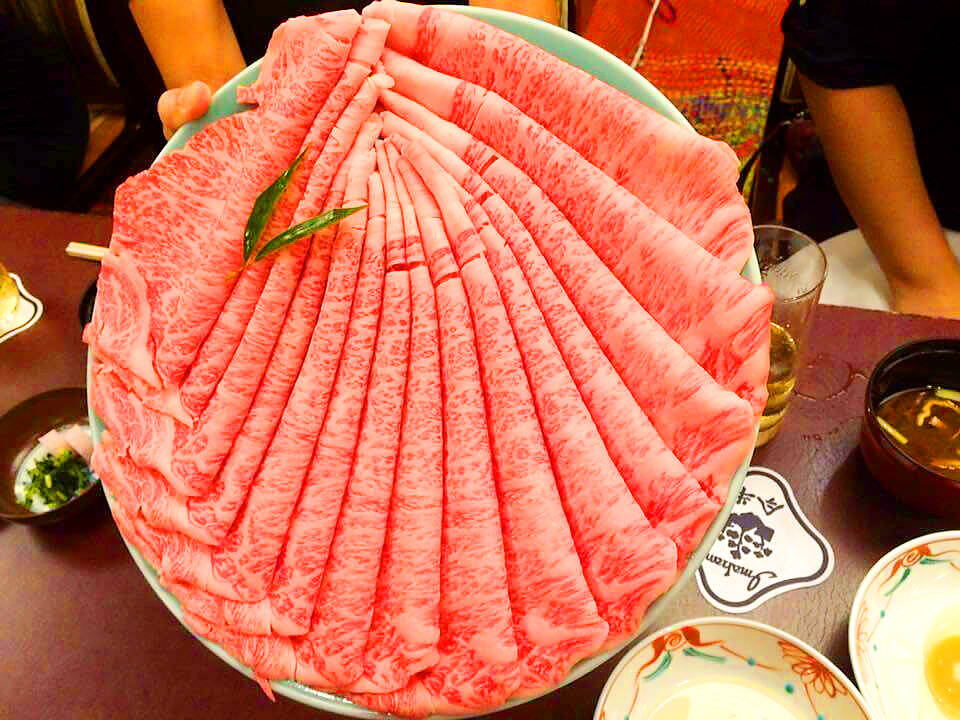Eating beef might reduce the risk of severe depression, a study by the National Health Research Institutes (NHRI) has suggested.
The study drew on open-access data on the dietary habits and mental health of 600,000 people collected by the UK Biobank and the Psychiatric Genomics Consortium, the NHRI said.
After utilizing Mendelian randomization to establish a two-way causal relationship between diet and major depression cases, the research team linked beef consumption to a lower risk of depression, while eating vegetables or fish had no significant effect on the condition, it said.

Photo: Wang Yi-hung, Taipei Times
In addition to beef, the data on dietary habits include consumption patterns for cooked vegetables and salads, fresh and dried fruits, oily fish and whitefish, processed meat, poultry, pork, lamb and mutton, cheeses, grains, bread, tea and coffee, water and alcohol, it said.
While the findings came as a surprise to the researchers, they are confident in the study, due to its rigorous methodology and large sample size, said Lin Yan-yeng (林彥鋒), an attending physician at the NHRI’s Center for Neuropsychiatric Research.
Studies in nutritional epidemiology were often limited to making inferences on correlations between dietary habits and health outcomes without establishing causal relationships, due to confounding biases, or the conflation of coincidence with causation, Lin said.
People who are mindful of their health are more likely to eat certain types of foods, but the cause of better health outcomes in the demographics could be something other than food, such as a higher income, better health knowledge and lifestyle, he added.
The Mendelian randomization process takes advantage of the random distribution of genes to exclude such biases from the study, he said, adding that the larger the sample pool, the more reliable the results.
Other nutritional ideas about relieving depression might have been based on unrealistic assumptions, such as taking 1,000mg of omega-3 fatty acids per day, which is an amount that requires eating more than a whole fish in every meal, Lin said.
Beef is rich in iron and vitamin B, but the mechanism of its observed contribution to better mental health has not been clarified yet, he added.
“Absent of evidence that depression leads to changes in dietary habits, the study contradicts the widely held belief that healthy foods might help relieve depression,” he said.
A preview of the study was published in the Journal of Affective Disorders on Dec. 15.
However, red meat also has a proven correlation with cancer and the research team does not reject the guidelines on healthy eating, Lin said.
“As long as it is consumed in moderation, eating foods you like does help you feel better, which certainly reduces the risks of depression,” he said. “Too much self-denial is bad for mental health.”
Eating 100g of red meat or 50g of processed red meat — including beef, pork and lamb — per day can increase of the risk of colorectal cancer by 17 percent, said Sheu Hui-yu (許惠玉), director of the nutrition section at the John Tung Foundation.
“People do not need to swear off red meat, but they should eat it in moderation and avoid processed meat,” he said.

A magnitude 5.6 earthquake struck off the coast of Yilan County at 12:37pm today, with clear shaking felt across much of northern Taiwan. There were no immediate reports of damage. The epicenter of the quake was 16.9km east-southeast of Yilan County Hall offshore at a depth of 66.8km, Central Weather Administration (CWA) data showed. The maximum intensity registered at a 4 in Yilan County’s Nanao Township (南澳) on Taiwan’s seven-tier scale. Other parts of Yilan, as well as certain areas of Hualien County, Taipei, New Taipei City, Taoyuan, Hsinchu County, Taichung and Miaoli County, recorded intensities of 3. Residents of Yilan County and Taipei received

Taiwan has secured another breakthrough in fruit exports, with jujubes, dragon fruit and lychees approved for shipment to the EU, the Ministry of Agriculture said yesterday. The Animal and Plant Health Inspection Agency on Thursday received formal notification of the approval from the EU, the ministry said, adding that the decision was expected to expand Taiwanese fruit producers’ access to high-end European markets. Taiwan exported 126 tonnes of lychees last year, valued at US$1.48 million, with Japan accounting for 102 tonnes. Other export destinations included New Zealand, Hong Kong, the US and Australia, ministry data showed. Jujube exports totaled 103 tonnes, valued at

BIG SPENDERS: Foreign investors bought the most Taiwan equities since 2005, signaling confidence that an AI boom would continue to benefit chipmakers Taiwan Semiconductor Manufacturing Co’s (TSMC, 台積電) market capitalization swelled to US$2 trillion for the first time following a 4.25 percent rally in its American depositary receipts (ADR) overnight, putting the world’s biggest contract chipmaker sixth on the list of the world’s biggest companies by market capitalization, just behind Amazon.com Inc. The site CompaniesMarketcap.com ranked TSMC ahead of Saudi Aramco and Meta Platforms Inc. The Taiwanese company’s ADRs on Tuesday surged to US$385.75 on the New York Stock Exchange, as strong demand for artificial intelligence (AI) applications led to chip supply constraints and boost revenue growth to record-breaking levels. Each TSMC ADR represents

TRUST: The KMT said it respected the US’ timing and considerations, and hoped it would continue to honor its commitments to helping Taiwan bolster its defenses and deterrence US President Donald Trump is delaying a multibillion-dollar arms sale to Taiwan to ensure his visit to Beijing is successful, a New York Times report said. The weapons sales package has stalled in the US Department of State, the report said, citing US officials it did not identify. The White House has told agencies not to push forward ahead of Trump’s meeting with Chinese President Xi Jinping (習近平), it said. The two last month held a phone call to discuss trade and geopolitical flashpoints ahead of the summit. Xi raised the Taiwan issue and urged the US to handle arms sales to